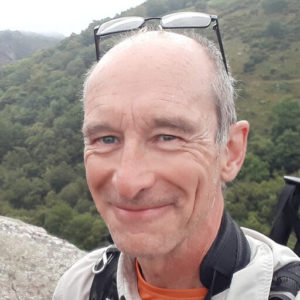
Adrian Harris MSc, PhD, is a psychotherapist in private practice. He became Director of Ecopsychology at Synthesis Insitute in 2020 and subsequently transferred to the Retreat Team where he currently works as a Co-Lead Psychedelic Facilitator. He is Lead Editor of The European Journal of Ecopsychology.
Colloquium Presentation: 24 February 2023 – 3.30-5pm
Ecotherapy for Psychedelic Integration
Abstract
Although nature connection is widely recommended for psychedelic preparation and integration, the current approach is piecemeal and fairly superficial: The potential power of nature connection is yet to be realised. The key to this potential lies in the parallels between the altered states facilitated by nature and the psychedelic experience. I consider these parallels using my experiential iceberg model and propose a process that underpins both states (Harris, 2016). While there’s been limited application of ecotherapy to psychedelic integration so far, I’ll outline related work we’ve done at Synthesis Retreats. Both psychedelic experience and nature connection can catalyse feelings of awe and a sense of deeper connection (Hendricks; Anderson et al.). Greenway found that extended time in nature can engender altered states that “closely parallel” psychedelic experience (Greenway). These can include feelings of connection (Greenway) and mystical experiences (Stace). Even simple practices like expanding sensory awareness, mindfulness, a nature-based awe walk or attending to peripheral vision can induce significantly altered states. The parallels between altered states facilitated by nature and psychedelic experience mean that ecopsychology exercises are ideal for preparation and integration. In the preparation phase, such exercises could introduce the participant to altered states within a psychologically supportive natural space. During integration, such altered states could provide an experiential echo of the psychedelic experience within a supportive environment. The nature-based integration process I propose would work on three levels: It would allow participants to access an altered state which parallels the psychedelic experience; this experience would be held within a context that heightens cognitive capacity, thus facilitating sense-making and engendering mental well-being.